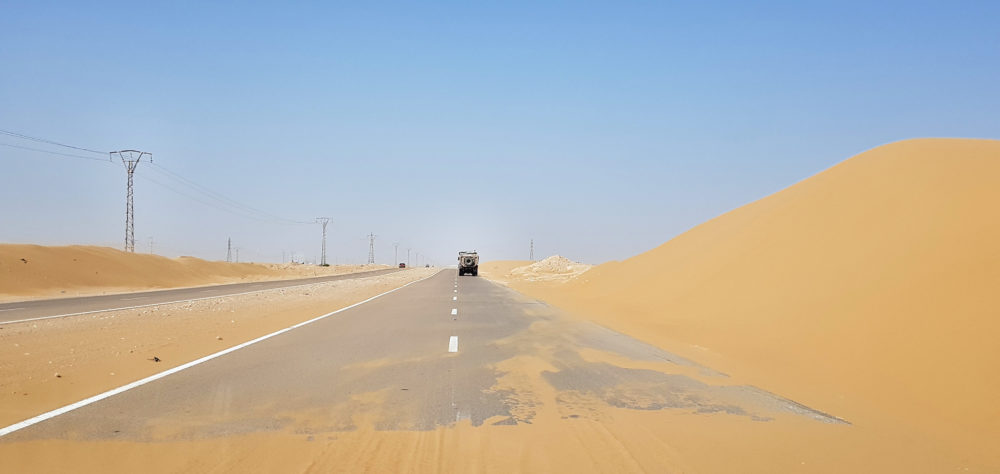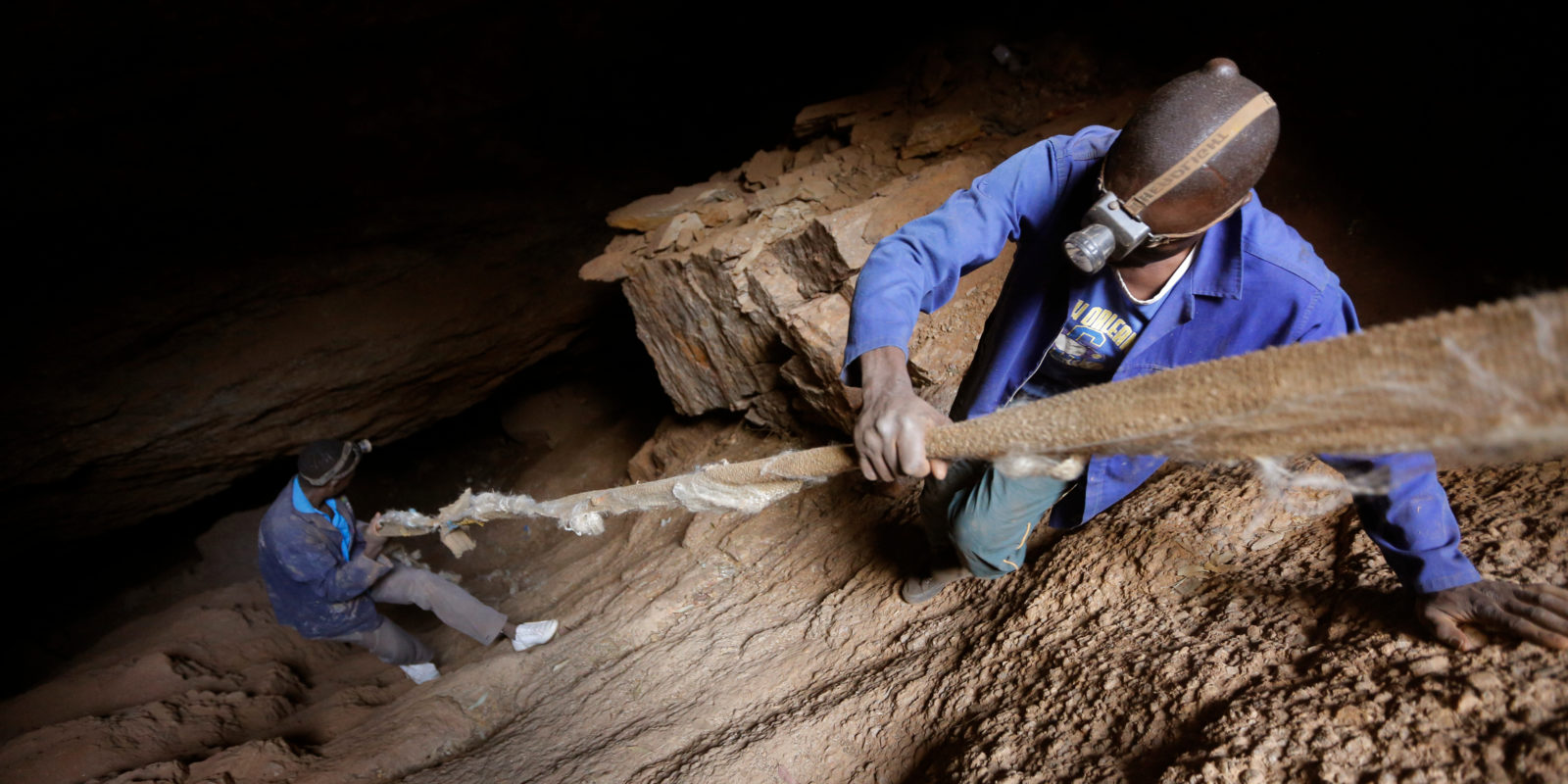News
Morocco, the Western Sahara and SA's inverted moral compass
When Pretoria bangs on about independence for the Western Sahara and the Sahrawi people from Morocco, is this because of old liberation ties, or its cosy relationship with Algiers, or is there really a case to be made for independence?

South Africa’s foreign policy is my moral compass. Whatever it is vociferously for, I am instinctively against. This is not only down to its ambivalence towards human rights abuses and electoral niceties (which it once deemed to make a policy lodestar) over at least two decades in Zimbabwe, but its spectacular record in supporting authoritarian regimes across the globe, from voting in the United Nations to selling arms.
In fact, South Africa appears to be clearer on what it is against than what it stands for. So, when Pretoria bangs on about independence for the Western Sahara and the Sahrawi people from Morocco, an old drum absorbing much ANC foreign policy literature and statements, is this because of old liberation ties, or its cosy relationship with Algiers, or is there really a case to be made for independence?
Western Sahara is a harsh place of desert flatlands and searing temperatures, of a nomadic people legendary for toughness as much as the colourful flowing Mahlfa robes “with built-in air conditioning” worn by its women. It is one of the world’s most sparsely populated areas with just two people in each of its 266,000km2, ranking it just above the three less populated areas: Mongolia, the Falklands and Greenland.
Half the population lives in Laayoune on the Atlantic coast, and another 150,000 in the coastal cities of Dakhla and Boujdor, 60,000 in the inland town of Smara, and perhaps 60,000 in the refugee camps in Tindouf in Algeria. The desert is virtually unpopulated, divided down its length by a giant sand berm demarcating the territory under the control of the Kingdom of Morocco, to the west, and the Polisario Front to the east.
It is divided since there is a difference of opinion about what to do about it. Spain gave up colonial control of the territory in 1975 to a joint administration of Morocco and Mauritania. The pro-independence Polisario proclaimed the Sahrawi Arab Democratic Republic (SADR) with a government in exile based in the Algerian town of Tindouf.
In November 1975, 350,000 unarmed Moroccans launched the “Green March” into the south of Western Sahara following an invasion of the north by Moroccan troops. Rabat eventually secured de facto control of two-thirds of the area, with the territory divided along the lines of a 1991 ceasefire administered by a United Nations peacekeeping mission.
In the court of international opinion, the Western Sahara remains a territory in limbo. Various plans to determine its future status through a referendum have fallen foul of the impasse between Algeria and the Polisario on the one hand, and Morocco on the other. The former wants a list of 74,000, based on the original Spanish census, to contest the vote; Morocco a figure closer to one million including all of the 32 tribes of the territory, including those who have decamped to other areas in Morocco and Mauritania.
And now, in a new twist, Rabat insists there should be no vote over independence. From their perspective, there should be a choice only over levels of autonomy within a Moroccan family.
It seems that, to parody Kipling, Algeria is east, and Morocco is west, and never the twain shall meet.
With Morocco’s 2017 readmission to the African Union, the Western Sahara issue is once more on the diplomatic table. Rabat has used its influence to squeeze African support for the Polisario.
According to Rabat’s figures, the number of AU member-states recognising the SADR has shrunk from 36 to just 15, eight of which are in Southern Africa, the others being Ghana, Uganda, regional powerhouses Nigeria and Ethiopia, Algeria of course, Libya and Mauritania.
South Africa recognised the SADR in 2004, after which time relations deteriorated to where they remain today — without ambassadors, with no direct air links, and with, at best, prickly exchanges. Senior figures in Rabat, somewhat dramatically, believe that “South Africa is boycotting Morocco, continuing a process of apartheid.
Pretoria is portrayed as threatened by Morocco’s growing store of African engagements and investments.
The tide is moving in a different direction to Pretoria. Originally 83 countries recognised the SADR across the world. This has reduced to 32 today. Morocco is increasingly an active investor in Africa, with a stake in the banking sector in more than 20 countries, to the extent that one in every three Dirham earned by the banking sector is from elsewhere in Africa. Royal Air Maroc now flies to 24 African countries and has an ambitious expansion plan to match its new aircraft inventory.
At the same time, no other UN member-state has recognised Moroccan sovereignty over the territory.
The UN, for its part, is intent on trying to get the sides together to discuss a solution — an outcome that is less likely now than it was 40 years ago when it was improbable. As such, it is a frozen conflict, where the 500 members of the optimistically termed UN Mission for the Referendum in Western Sahara (Minurso) spend $50 million annually in trying to prepare the territory for the referendum — a number ensconced in Laayoune’s Hotel Al Mirassa, or “Green March”. In international relations, it appears there is no sense of irony.
In the interim, the Western Sahara chunders on, and at an impressive rate of development and growth.
The port town of El-Marsa is an example of this progress. From a few fishing boats and no paved roads at the time of independence from Spain, today there are 40 fish factories, four of which process and package nearly 200 million cans of sardines and mackerel mostly for the European market. The remainder focus on fish meal and oils, and frozen fish. Down the road is a fully fledged $30-million reverse osmosis desalination plant capable of producing 26,000m3 of fresh water daily, “which has turned our water from a salty trickle from boreholes”, says Mansour Lamina of the office of the local Wali (Governor), “to something we can at last drink.”
She should know, having spent a childhood in the far southern oasis town of Assa, 550km away, where her father was a goat and camel trader.
And short distance south is the OCP port through which two million tons of phosphate are exported annually along a 100km conveyor belt. This totals about 8% of Morocco’s annual production, the kingdom possessing 70% of the world’s reserves.
None of this seems to impress the SA government, however. Pretoria still prefers to view the issue through a Cold War lens, as a radical, Manichean choice between colonialism and liberation.
But this is off the contemporary mark for at least three reasons.
The first is SA’s professed support for conflict resolution and negotiation. There is not much to be negotiated if Polisario rule is Pretoria’s bottom-line at the outset.

Second, Morocco has moved along a great deal in the past 40 years.
Rabat has put substantially more into the region than it is taking out, a net inflow of several hundred million dollars into parks, schools, hospitals, sports facilities, highways, waste management and potable water, library and cultural centres, renewable energy generation, ports and airports.
This is in part down to King Mohammed VI’s more liberal attitude than his father, Hassan II, who in the words of one contemporary report was then “obsessed with the preservation of his power rather than with its application toward the resolution of Morocco’s multiplying domestic problems”.
Today Rabat is a modernising social and economic stand-out nation in what is, admittedly, a troubled region. And Algeria is the Polisario’s benefactor for reasons that have less to do with questions of principle and practices of human rights, where it has an uncertain record, at best. The rivalry with Morocco lies at the heart of this struggle.
Pretoria would do well to take a good look at the extent of these changes. It might even learn and possibly even gain something. Just imagine a codeshare agreement between struggling SAA and RAM, or an expansion of the successful Maroc aerospace industrial model southwards? There are real benefits to be gained by SA from closer ties with Africa’s fifth-largest economy.
Currently, however, there is no agrément by Pretoria even on the nomination of a new Moroccan ambassador. That he is a respected former deputy minister of foreign affairs is an indication of how seriously Rabat takes bilateral relations, even if Pretoria does not.
And third, SA business is taking its lead from these developments, not from Pretoria’s polemic. For example, Sanlam concluded a billion-dollar insurance deal in 2018 with the confusingly named Saham company, SA fishing companies are working in partnership with their Marsa-based counterparts and there are substantial SA investments in tourism, furniture and education, among other sectors.
The Moroccans, for their part, would do well to stop presenting the Western Sahara a referendum on bilateral relations, the health of which is dependent on where partners stand on the issue. They too need to develop a fresh narrative on the region.
Hamdi Ould Errachid has been Mayor of Laayoune for 20 years. He speaks of the territory acquiring “independence in 1975”. In Tindouf they continue to see an independence postponed. Even if the Polisario was to win the day and achieve its dream of independence, it is uncertain if this would amount to anything more than Algerian neo-colonialism. A case of ‘colonialism is dead, long live colonialism’?
Still, don’t expect any change from Pretoria on this issue. That would require thinking things through the outside of a 1970s paradigm.
This article was originally published in The Dialy Maverick.


